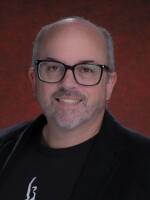KPBS recently interviewed El Centro Mayor Efrain Silva about the challenge of reopening the economy in the small Imperial County city. Mayor Silva says El Centro has lost about $3 million in sales tax revenue, which could take two to three years to recover even with healthy reserves.
RELATED: Imperial County Officials Say They’re Prepared To Prevent Spread Of Coronavirus
Mayor Silva also talked about the loss in business for El Centro Regional Medical Center and gives some insight on his personal experience as a public leader during an unprecedented time.
On balancing economy vs public health:
“We are trying to do the best we can for our community and we’re looking for ways to reopen. I think our community is getting anxious and we’re waiting to open, but we obviously want to do that in a safe manner that is going to reduce the probability of continuing the spread of the virus but also be responsible to our business community.”
On the challenge for local hospitals:
“There has obviously been an impact on our hospital staff and the medical personnel. Also quite a significant impact on hospital resources in terms of financial resources. With only COVID-related patients right now, for the most part other revenue sources for the hospital have ceased to exist. And so, in addition to the medical crises and being able to deal with COVID, there is also a large fisal strain on the hospital.”
RELATED: In Imperial County, Nonprofits Struggle To Serve Homeless During COVID-19
On the looming financial challenges for the city of El Centro:
“Sales tax revenue is one of the primary sources of income for the city of El Centro. About 42% of our revenue comes from sales tax, and with the closing of retail, which is our primary source, we’ve seen a significant impact. We anticipate for this coming year the impact to be about $3 million, which for us in El Centro, a small community, is a significant impact. It’s a hit that’s going to hurt. I’m proud to say that the city of El Centro has a pretty healthy reserves and we’ll be able to cushion that impact in a way that is less impacting on our own citizens."
“We also realize that the recovery is going to be slow. When the economy opens up again, we’re not going to see our stores filled with customers and restaurants filled. It’s going to be a very transitional effect to be able to get back to normal times. We don’t anticipate to be able to recover to normal tax revenue for another two to three years.”
On what he wants to tell El Centro residents:
“A recurring message from me to our citizens is that when we’re able to reopen our economy in a very responsible way, it’s going to take all of us to work together to keep our businesses open. It’s going to be the responsibility of businesses to open in a responsible way with all of the preventative measures; the face masks, the physical distancing, the sanitizing and all those things. But more importantly we’re asking for us, as consumers, to abide by those rules."
"As I travel through the city I begin to see people relaxing. Instead of using the face mask where they’re supposed to, they’re wearing it underneath their nose and relaxing on the physical distancing. That’s a mistake and if we don’t all adhere and act together, we may be here longer than we all want to be."
On how he is personally dealing with leading a city during a time like this:
“This is totally surreal. Never in my life would I have expected us to be facing what we’re facing. I’m working out of my office, but I’m the only person here. I’m very privileged to have a job that allows me to continue to work and continue to receive my salary. I know that I’m very privileged in that. As we weigh the options and we weigh the necessity to open the economy, I think about those people that are not as fortunate as I am and that are suffering and going hungry. They’re falling behind on their rent and mortgages and car payments and all those financial implications of the virus, and I feel we have to be responsible to those individuals as well. I wake up in the morning and I wish that I was waking up from a bad nightmare. It’s not a nightmare. It’s here and from what I see it’s going to continue to be with us."
On the difficulty of deciding when to ease restrictions:
“This is a very difficult decision. As the city of El Centro was preparing a plan to open up the economy I got applause from some people and total hate mail from other people. Our community is divided on the timing of the reopening and it’s a difficult job for us elected officials to make some very difficult decisions. But again, we have to keep in mind that we have to balance our social needs, our personal needs, our economic needs and our mental health needs. It’s a job I never anticipated would be this difficult to do, but I’m glad that I’m here and I’m glad that I’m in a position to make those decisions even though I recognize that at the end of the day some people will be happy and other people will not.”







